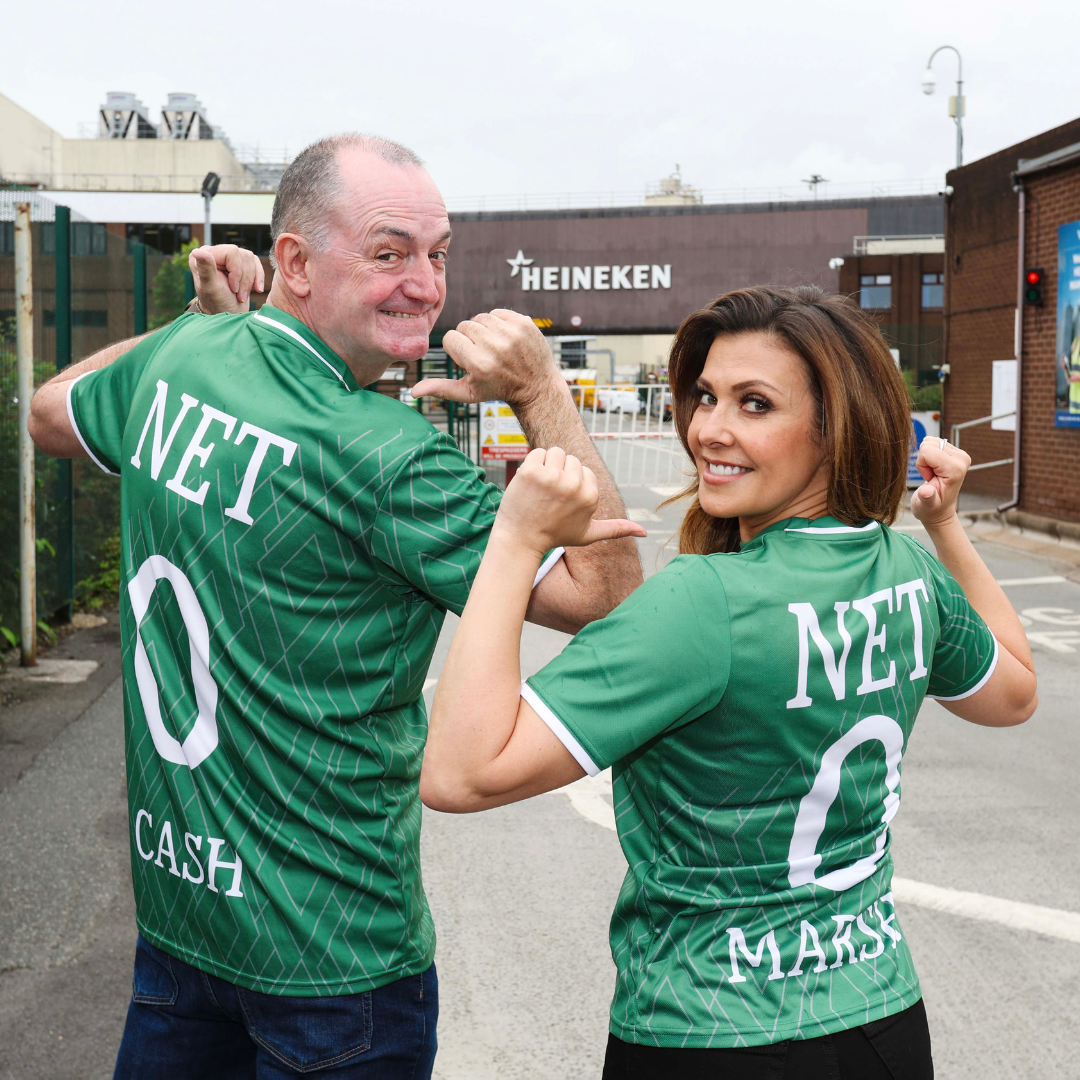
Reducing our Carbon Emmisions
We're committed to reducing our carbon footprint and tackling climate change and aim for net zero carbon emissions in production by 2030 and net zero emissions across our entire value chain by 2040.
In 2024 we achieved 34% reduction of scope 1 and 2 vs 2018 and 11% improvement of average water usage (hl/hl) compared to 2018.

Our Investment into Manchester Brewery
We already buy electricity from renewable sources and now we’re aiming to reduce our reliance on fossil fuels like gas. To do this we’ve invested in new heat pump technology which will take excess heat that was once wasted and turn it into new power which we’ll reuse to brew and pack our beers like Heineken, Birra Moretti and Foster’s.
By creating this circular process to reuse heat, we reduce our carbon footprint and Brew a Better World.

Reducing Emissions Beyond Production
To reduce our carbon footprint, we know we need to focus on the value chain beyond our production activities.
Agriculture is the biggest contributor to our total carbon footprint. That's why we're working with farmers to reduce carbon emissions from barley farming.
100% of the apples we press at our Ledbury cider mill are from the UK. The apple waste generated in making our Inch’s Cider is reused to generate renewable energy.

Improving Use and Increasing Reuse
In 2021, we piloted producing lower-carbon glass Heineken bottles using biofuels and increased recycled content, reducing emissions by up to 90% per bottle.

Water Efficiency
Our SmartDispense technology is already helping our customers serve quality drinks whilst reducing water use in their pubs, bars and restaurants. Since 2012, it’s helped to save more than 134 million pints of water.
We're committed to improving our water efficiency, so we can continue to make great drinks with as little impact on the environment as possible. Our 2025 ambition is to reach a water efficiency of 2.71hl for every hectolitre of beer and cider produced.
